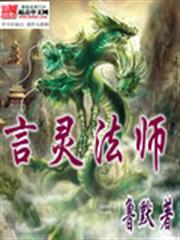APPENDIX
您可以在百度里搜索“The Works of Charles and Mary Lamb — Volume 6 艾草文学(www.321553.xyz)”查找最新章节!
APPENDIX
CONSISTING OF THE LONGER PASSAGES FROM BOOKS REFERRED TO BY LAMB IN HIS LETTERS
BERNARD BARTON'S "THE SPIRITUAL LAW"
FROM DEVOTIONAL VERSES, 1826 (See Letter 388, page 746)
"But the word is very nigh unto thee, in thy mouth, and in thy heart, that them mayest do it."—Deut. xxx. 14.
Say not The law divine
Is hidden from thee, or far remov'd:
That law within would shine,
If there its glorious light were sought and lov'd.
Soar not on high,
Nor ask who thence shall bring it down to earth;
That vaulted sky
Hath no such star, didst thou but know its worth.
Nor launch thy bark
In search thereof upon a shoreless sea,
Which has no ark,
No dove to bring this olive-branch to thee.
Then do not roam
In search of that which wandering cannot win;
At home! At home!
That word is plac'd, thy mouth, thy heart within.
Oh! seek it there,
Turn to its teachings with devoted will;
Watch unto prayer,
And in the power of faith this law fulfil.
BARTON'S "THE TRANSLATION OF ENOCH"
FROM NEW YEAR'S EVE, 1828
(See Letter 467, page 841)
"And Enoch walked with God: and he was not; for God took him."
Genesis.
Through proudly through the vaulted sky
Was borne Elisha's sire,
And dazzling unto mortal eye
His car and steeds of fire:
To me as glorious seems the change
Accorded to thy worth;
As instantaneous and as strange
Thy exit from this earth.
Something which wakes a deeper thrill,
These few brief words unfold,
Than all description's proudest skill
Could of that hour have told.
Fancy's keen eye may trace the course
Elijah held on high:
The car of flame, each fiery horse,
Her visions may supply;—
But THY transition mocks each dream
Framed by her wildest power,
Nor can her mastery supreme
Conceive thy parting hour.
Were angels, with expanded wings,
As guides and guardians given?
Or did sweet sounds from seraphs' strings
Waft thee from earth to heaven?
'Twere vain to ask: we know but this—
Thy path from grief and time
Unto eternity and bliss,
Mysterious and sublime!
With God thou walkedst: and wast not!
And thought and fancy fail
Further than this to paint thy lot,
Or tell thy wondrous tale.
TALFOURD'S "VERSES IN MEMORY OF A CHILD NAMED AFTER CHARLES LAMB"
FROM THE FINAL MEMORIALS OF CHARLES LAMB
(See Letter 469, page 846)
Our gentle Charles has pass'd away
From Earth's short bondage free,
And left to us its leaden day
And mist-enshrouded sea.
Here, by the restless ocean's side,
Sweet hours of hope have flown,
When first the triumph of its tide
Seem'd omen of our own.
That eager joy the sea-breeze gave,
When first it raised his hair,
Sunk with each day's retiring wave,
Beyond the reach of prayer.
The sun-blink that through drizzling mist,
To flickering hope akin,
Lone waves with feeble fondness kiss'd,
No smile as faint can win;
Yet not in vain, with radiance weak,
The heavenly stranger gleams—
Not of the world it lights to speak,
But that from whence it streams.
That world our patient sufferer sought,
Serene with pitying eyes,
As if his mounting Spirit caught
The wisdom of the skies.
With boundless love it look'd abroad
For one bright moment given;
Shone with a loveliness that aw'd,
And quiver'd into Heaven.
A year made slow by care and toil
Has paced its weary round,
Since Death enrich'd with kindred spoil
The snow-clad, frost-ribb'd ground.
Then LAMB, with whose endearing name
Our boy we proudly graced,
Shrank from the warmth of sweeter fame
Than mightier Bards embraced.
Still 'twas a mournful joy to think
Our darling might supply
For years to us, a living link,
To name that cannot die.
And though such fancy gleam no more
On earthly sorrow's night,
Truth's nobler torch unveils the shore
Which lends to both its light.
The nurseling there that hand may take,
None ever grasp'd in vain,
And smiles of well-known sweetness wake,
Without their tinge of pain.
Though,'twixt the Child and child-like Bard,
Late seemed distinction wide.
They now may trace in Heaven's regard,
How near they were allied.
Within the infant's ample brow
Blythe fancies lay unfurl'd,
Which, all uncrush'd, may open now,
To charm a sinless world.
Though the soft spirit of those eyes
Might ne'er with LAMB'S compete—
Ne'er sparkle with a wit as wise,
Or melt in tears, as sweet;
That calm and unforgotten look
A kindred love reveals,
With his who never friend forsook,
Or hurt a thing that feels.
In thought profound, in wildest glee,
In sorrows dark and strange,
The soul of Lamb's bright infancy
Endured no spot or change.
From traits of each our love receives
For comfort, nobler scope;
While light, which child-like genius leaves.
Confirms the infant's hope;
And in that hope with sweetness fraught
Be aching hearts beguiled,
To blend in one delightful thought
The POET and the CHILD!
EDWARD FITZGERALD'S "THE MEADOWS IN SPRING"
FROM HONE'S YEAR BOOK
(See Letter 535, page 938)
'Tis a sad sight
To see the year dying;
When autumn's last wind
Sets the yellow wood sighing;
Sighing, oh sighing!
When such a time cometh,
I do retire
Into an old room,
Beside a bright fire;
Oh! pile a bright fire!
And there I sit
Reading old things
Of knights and ladies,
While the wind sings:
Oh! drearily sings!
I never look out,
Nor attend to the blast;
For, all to be seen,
Is the leaves falling fast:
Falling, falling!
But, close at the hearth,
Like a cricket, sit I;
Reading of summer
And chivalry:
Gallant chivalry!
Then, with an old friend,
I talk of our youth;
How 'twas gladsome, but often
Foolish, forsooth,
But gladsome, gladsome.
Or, to get merry,
We sing an old rhyme
That made the wood ring again
In summer time:
Sweet summer time!
Then take we to smoking,
Silent and snug:
Naught passes between us,
Save a brown jug;
Sometimes! sometimes!
And sometimes a tear
Will rise in each eye,
Seeing the two old friends,
So merrily;
So merrily!
And ere to bed
Go we, go we,
Down by the ashes
We kneel on the knee;
Praying, praying!
Thus then live I,
Till, breaking the gloom
Of winter, the bold sun
Is with me in the room!
Shining, shining!
Then the clouds part,
Swallows soaring between:
The spring is awake,
And the meadows are green,—
I jump up like mad;
Break the old pipe in twain;
And away to the meadows,
The meadows again!
EPSILON.
JAMES MONTGOMERY'S "THE COMMON LOT"
(See Letter 535, page 938)
A Birth-day Meditation, during a solitary winter walk of seven miles, between a village in Derbyshire and Sheffield, when the ground was covered with snow, the sky serene, and the morning air intensely pure.
Once in the flight of ages past,
There lived a man:—and WHO was HE?
—Mortal! howe'er thy lot be cast,
That man resembled Thee.
Unknown the region of his birth,
The land in which he died unknown:
His name has perish'd from the earth;
This truth survives alone:—
That joy and grief, and hope and fear,
Alternate triumph'd in his breast;
His bliss and woe,—a smile, a tear!—
Oblivion hides the rest.
The bounding pulse, the languid limb,
The changing spirits' rise and fall;
We know that these were felt by him,
For these are felt by all.
He suffer'd,—but his pangs are o'er;
Enjoy'd,—but his delights are fled;
Had friends,—his friends are now no more;
And foes,—his foes are dead.
He loved,—but whom he loved, the grave
Hath lost in its unconscious womb:
O. she was fair!—but nought could save
Her beauty from the tomb.
He saw whatever thou hast seen;
Encounter'd all that troubles thee:
He was—whatever thou hast been;
He is—what thou shalt be.
The rolling seasons, day and night,
Sun, moon, and stars, the earth and main,
Erewhile his portion, life and light,
To him exist in vain.
The clouds and sunbeams, o'er his eye
That once their shades and glory threw,
Have left in yonder silent sky
No vestige where they flew.
The annals of the human race,
Their ruins, since the world began,
Of HIM afford no other trace
Than this,—THERE LIVED A MAN!
November 4, 1805. BARRY CORNWALL'S "EPISTLE TO CHARLES LAMB;
ON HIS EMANCIPATION FROM CLERKSHIP"
(WRITTEN OVER A FLASK OF SHERRIS)
FROM ENGLISH SONGS
(See Letter 551, page 952)
Dear Lamb! I drink to thee,—to thee
Married to sweet Liberty!
What, old friend, and art thou freed
From the bondage of the pen?
Free from care and toil indeed?
Free to wander amongst men
When and howsoe'er thou wilt?
All thy drops of labour spilt,
On those huge and figured pages,
Which will sleep unclasp'd for ages,
Little knowing who did wield
The quill that traversed their white field?
Come,—another mighty health!
Thou hast earn'd thy sum of wealth,—
Countless ease,—immortal leisure,—
Days and nights of boundless pleasure,
Checquer'd by no dreams of pain,
Such as hangs on clerk-like brain
Like a night-mare, and doth press
The happy soul from happiness.
Oh! happy thou,—whose all of time
(Day and eve, and morning prime)
Is fill'd with talk on pleasant themes,—
Or visions quaint, which come in dreams
Such as panther'd Bacchus rules,
When his rod is on "the schools,"
Mixing wisdom with their wine;—
Or, perhaps, thy wit so fine
Strayeth in some elder book,
Whereon our modern Solons look
With severe ungifted eyes,
Wondering what thou seest to prize.
Happy thou, whose skill can take
Pleasure at each turn, and slake
Thy thirst by every fountain's brink,
Where less wise men would pause to shrink:
Sometimes, 'mid stately avenues
With Cowley thou, or Marvel's muse,
Dost walk; or Gray, by Eton's towers;
Or Pope, in Hampton's chesnut bowers;
Or Walton, by his loved Lea stream:
Or dost thou with our Milton dream,
Of Eden and the Apocalypse,
And hear the words from his great lips?
Speak,—in what grove or hazel shade,
For "musing meditation made,"
Dost wander?—or on Penshurst Lawn,
Where Sidney's fame had time to dawn
And die, ere yet the hate of Men
Could envy at his perfect pen?
Or, dost thou, in some London street,
(With voices fill'd and thronging feet,)
Loiter, with mien 'twixt grave and gay?—
Or take along some pathway sweet,
Thy calm suburban way?
Happy beyond that man of Ross,
Whom mere content could ne'er engross,
Art thou,—with hope, health, "learned leisure;"
Friends, books, thy thoughts, an endless pleasure!
—Yet—yet,—(for when was pleasure made
Sunshine all without a shade?)
Thou, perhaps, as now thou rovest
Through the busy scenes thou lovest,
With an Idler's careless look,
Turning some moth-pierced book,
Feel'st a sharp and sudden woe
For visions vanished long ago!
And then thou think'st how time has fled
Over thy unsilvered head,
Snatching many a fellow mind
Away, and leaving—what?—behind!
Nought, alas! save joy and pain
Mingled ever, like a strain
Of music where the discords vie
With the truer harmony.
So, perhaps, with thee the vein
Is sullied ever,—so the chain
Of habits and affections old,
Like a weight of solid gold,
Presseth on thy gentle breast,
Till sorrow rob thee of thy rest.
Ay: so't must be!—Ev'n I, (whose lot
The fairy Love so long forgot,)
Seated beside this Sherris wine,
And near to books and shapes divine,
Which poets, and the painters past
Have wrought in lines that aye shall last,—
Ev'n I, with Shakspeare's self beside me,
And one whose tender talk can guide me
Through fears, and pains, and troublous themes,
Whose smile doth fall upon my dreams
Like sunshine on a stormy sea,—
Want something—when I think of thee! The Works of Charles and Mary Lamb — Volume 6




